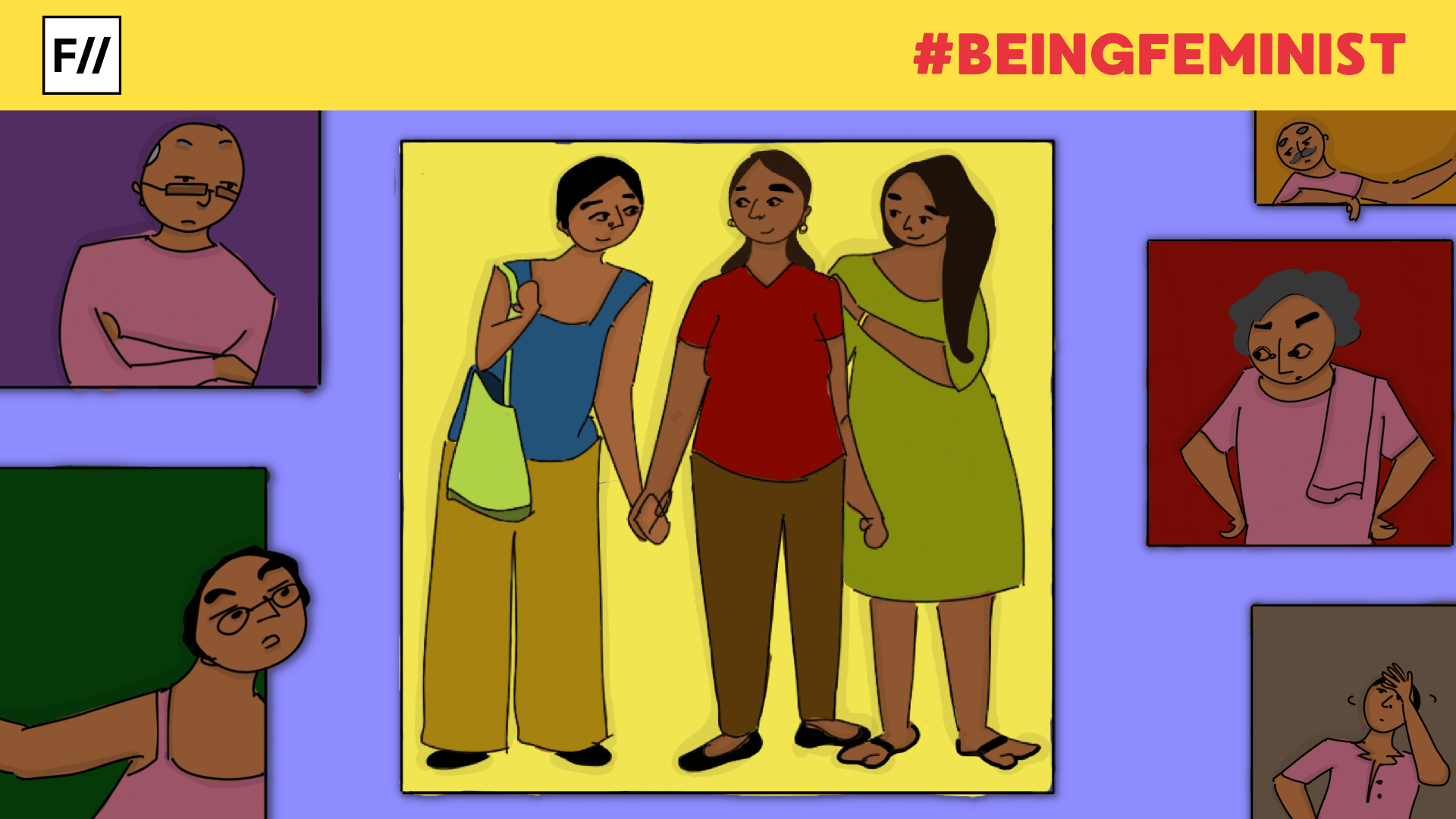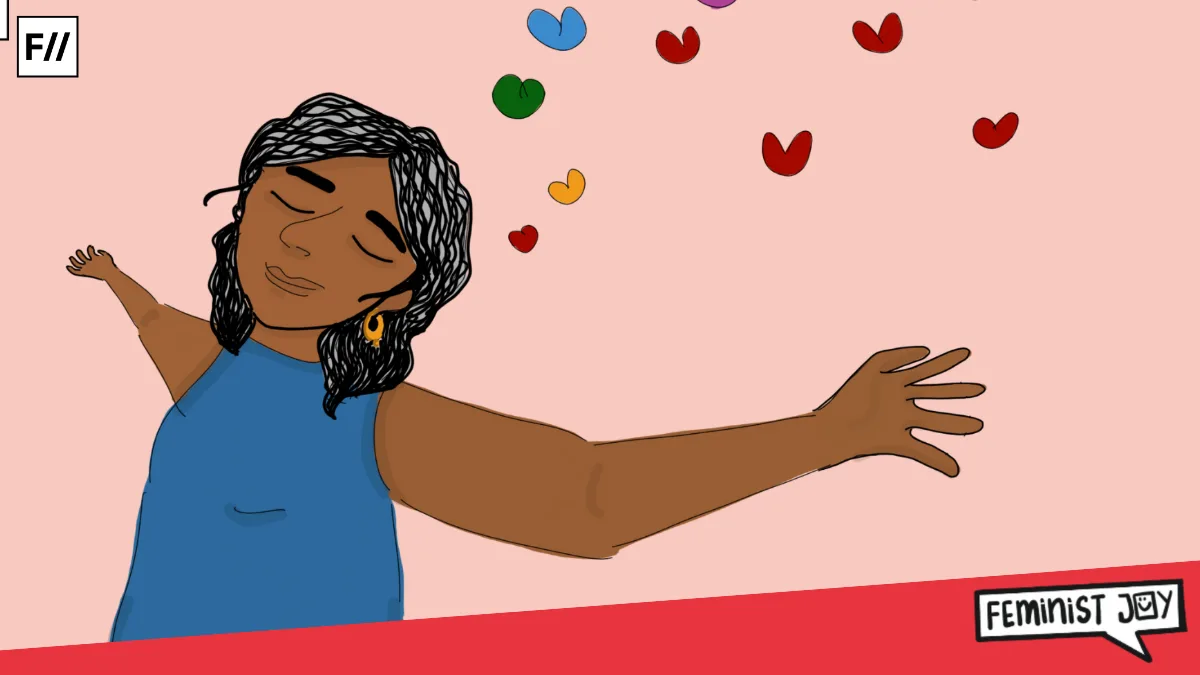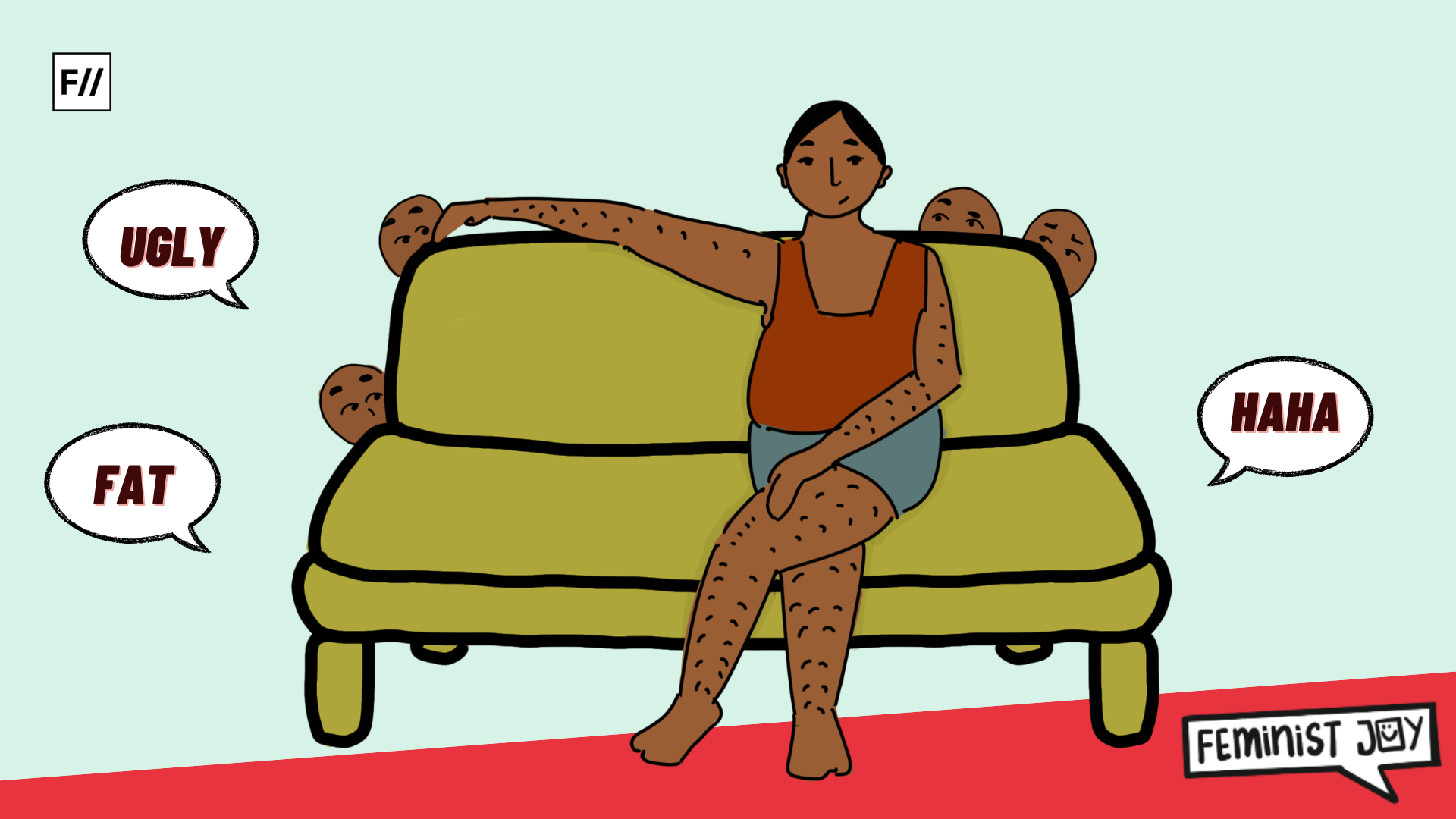Editorial Note: Being Feminist is a fortnightly column that features personal narratives documenting the emotions, vulnerabilities and innermost contradictions every feminist encounters while trying to push through various degrees of patriarchy in private, professional and public spaces.
In order to compensate for a lost campus life during the pandemic and the abandoned learning experience of living away from biological family, my friend Bhavika and I summoned the courage to move out of our respective homes for the few months left before our graduation. However, acting on our aspirations was like hazing our minds around something that would be a fantasy less possible to achieve.
This is because despite having several reasons to move out, we ran out of reasonable ones that could persuade our parents to allow us to live in Delhi. Nevertheless, convinced by our seemingly rogue ambitions, we ventured on a quest that called for unending patience – house hunting.
The conversations around the idea of me moving out were emotionally threatening in the sense that I was inordinately and quite distastefully endowed with the responsibility of spending my parent’s money wisely. This seemed like borderline gaslighting of my decision to move out from a place that did little to offer me the emotional and mental support I needed throughout.
It made me perceive my decision as a selfish and inconsiderate one. In deeply patriarchal societies like ours, families not only fail to acknowledge but are also unaware of the discomforting environment they provide for young adults. They press undue significance on the idea of compromise to evade the confrontation on the kind of environment they provide women to grow.

I was situated in a moral conundrum in which my aspiration of living with my friend who could offer me solidarity and support was posed as unaffordable and to an extent quite unnecessary too. While I made genuine attempts to acknowledge and empathise with the financial limitations of my family, I felt the need to be assertive about my need of living in a more healthy space. However, this is when I experienced the lack of accessibility for a safe space and the intricacies of bargaining a way out.
Incurring the emotional cost of these arbitrations, Bhavika and I were hinged and mused by the thought of living together in a rented flat. Little did we know of what was ahead of us. The familial anxieties lurked around and our competency to procure a flat as women were at times, undermined.
Further, I was provided with unprompted suggestions of going to the gym and eating less, as a part of the fat shaming process. We were consistently advanced with decorative prospects of being allowed free permission for calling our ‘boyfriends’ for nightovers while also being warned to not dispose off the flat as an “Oyo room”. In that sense, our sexuality and sex life became a matter of public spectacle, negotiation and business conversations without our consent
Our negotiations with landowners, all of which were men, were plain sailing to an extent where we obliged and conformed to their sexist and misogynist attitudes. We were welcomed with unsolicited propositions of being daughters (“tum to humare baithi jasi ho”)to such men who assumed themselves the onus of championing the role of a parent.
Hence, we encountered the convenience and privilege with which such paternal and territorial entitlement is exercised onto women. Further, susceptibilities like the ‘no boys rule at night’ coupled non consensual “concerns” for our safety were gateways to morally police our lives. In our interaction with brokers, the luring idea of ‘no landlord interference’ became a compelling part of their sales pitch and a necessary bait to persuade women students. We learnt how our sexual liberty is commercialised and accommodated in the sexist imperatives of the society.
/cdn.vox-cdn.com/uploads/chorus_asset/file/20104639/IMG_3618.jpg)
Our experiences became dreadful after our encounter with a broker, who carried out his business with the help of his family in the north campus of Delhi University. In our first meeting, Rishabh, the broker (name changed) drove his motorcycle with Bhavika riding pillion while I was asked to use his spare scooter in order to reach the flat’s location from the broker’s office. For the purpose of convenience, I agreed to this offer only to be mansplained and in the process also considered feeble to ride a bike.
In the course of our dealing, we were offensively called ‘chalak’ (oversmart) for raising concern in matters where we realised we were being plundered and given distorted information about the agreement and brokerage fees. We were harshly compelled to experience the hypermasculine tendencies of most of these businessmen who appeared a little too informal in their gestures while offering cigarettes and ordering food despite our refusal.
Throughout the course of house hunting, I was constantly reminded of the fact that I am a woman, and my ambitions, opinions and concerns are disposable at the convenience of men. Our tireless resistance to misogyny was our only way of assertion which grew burdening with the passage of time. Nevertheless, I would like to believe that this experience was one in which I learned and equipped myself with the strategies of bargaining in a hypermasculine and dominant market space. It was about time I acknowledged that many of my such learnings are going to be tormenting and unaffordable, but necessary for surviving patriarchy
Further, I was provided with unprompted suggestions of going to the gym and eating less, as a part of the fat shaming process. We were consistently advanced with decorative prospects of being allowed free permission for calling our ‘boyfriends’ for nightovers while also being warned to not dispose off the flat as an “Oyo room”. In that sense, our sexuality and sex life became a matter of public spectacle, negotiation and business conversations without our consent.
Eventually, the transaction became emotionally, mentally and physically exhausting and intrusive to an extent that we were no longer enthusiastic about the entire process of house hunting. We were harmed by our own sense of failure and disappointment of acquiring a flat efficiently. Nevertheless, the constant companionship of Bhavika and Kanika(who offered her place for the stay throughout) was the only comfort that I received.
Also read: Single Woman In The City: Of Living Alone, Fear & Freedom

Not only were Bhavika and I ridiculed for our supposed incapabilities by such men, but were also mocked for seeming logical and astute in our engagements with the broker and landowners. The situation aggravated to a point where Bhavika had to travel back home after falling ill during the dealing. It was then we were given the rightful possession of the flat which was long due and one of great agony.
Throughout the course of house hunting, I was constantly reminded of the fact that I am a woman, and my ambitions, opinions and concerns are disposable at the convenience of men. Our tireless resistance to misogyny was our only way of assertion which grew burdening with the passage of time.
Nevertheless, I would like to believe that this experience was one in which I learned and equipped myself with the strategies of bargaining in a hypermasculine and dominant market space. It was about time I acknowledged that many of my such learnings are going to be tormenting and unaffordable, but necessary for surviving patriarchy.
I believe that it is important to realise that while resistances are a popular sight in the feminist imagination of a woman, we need to be empathetic about the emotional delicacies on which such ‘resistances’ stand. Being a feminist is less of a flag bearing challenge under which women projected as icons and in the process de-humanised are to be considered immune to vulnerabilities
If I observe my interactions and resistances during the dealing, I find that there were times when I was coerced to succumb and was complacent about the sexism and misogyny that was inflicted upon me. At a particular moment during which Bhavika had returned home and I was left alone to handle the brokerage transaction, Rishabh offered to teach me how to ride a bike to which I hesitantly agreed.
To be quite honest about it, I haven’t allowed myself to process the circumstances under which I had agreed to that offer. To protect myself from the fallout of it, I have until today chosen not to confront and perhaps remained in denial of the utmost genuineness of my response to the offer.
While being ideologically equipped to combat such situations, I felt isolated and bounded by the circumstances under which the offer was advanced. Today, the estrangement I experience after the realisation of my surrender is one I cannot imagine holding up to.
I believe that it is important to realise that while resistances are a popular sight in the feminist imagination of a woman, we need to be empathetic about the emotional delicacies on which such ‘resistances’ stand. Being a feminist is less of a flag bearing challenge under which women projected as icons and in the process de-humanised are to be considered immune to vulnerabilities.
Exercising the identity of a feminist is a persistent, tormenting and quite contradictorily, a liberating experience hinged on the shared reality and solidarity of women and the feminist community.
Featured Illustration: Ritika Banerjee for Feminism In India
About the author(s)
Mansi Bhalerao is an Ambedkarite feminist, an undergraduate at Miranda House. She is an aspiring student of Sociology, trying to navigate and assert her praxis.




